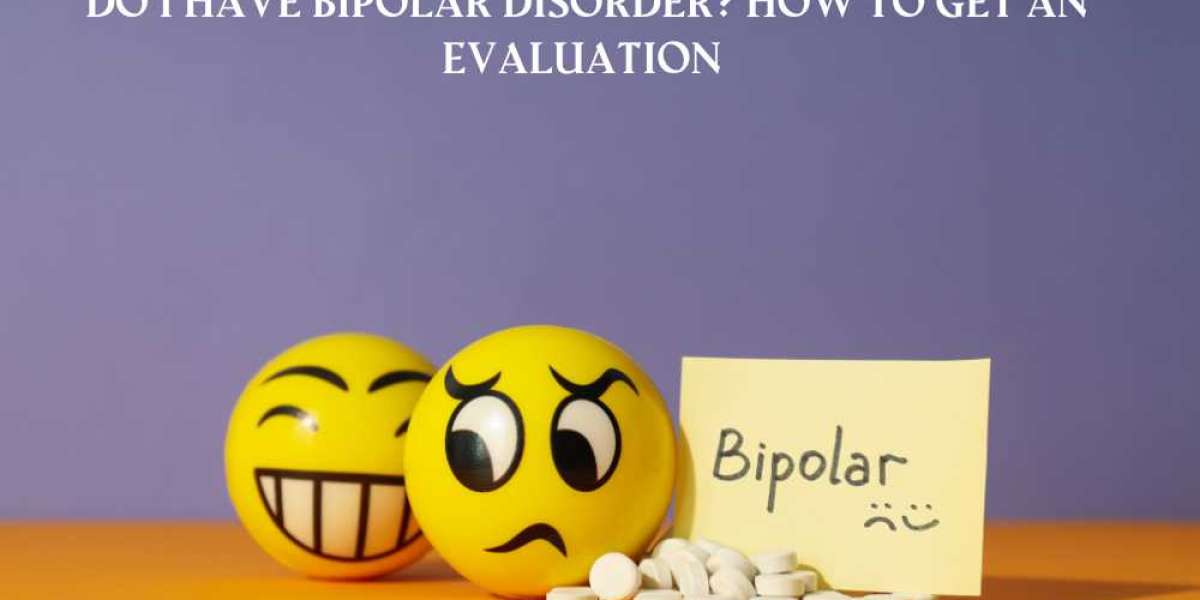Bipolar disorder is a multifaceted mental health condition that can significantly impact daily life. If you suspect you might have bipolar disorder or are grappling with mental health challenges, seeking help from a qualified professional, such as a psychiatrist, is crucial. They can provide a thorough evaluation, accurate diagnosis, and effective treatment options to help you regain stability and well-being.
This guide explores the symptoms of bipolar disorder, when to seek an evaluation, and what to expect during the process.
What Is Bipolar Disorder?
Bipolar disorder, formerly known as manic-depressive disorder, is a mood disorder characterized by extreme shifts in:
- Mood
- Behavior
- Energy levels
- Daily functioning
These shifts, or “episodes,” can last days or weeks and range from intense highs (mania) to severe lows (depression). The frequency and intensity of episodes vary widely among individuals.
While some people with bipolar disorder may experience long periods of stability, for many, the condition disrupts relationships, work, and daily routines. Professional care can make a significant difference in managing these challenges.
Symptoms of Bipolar Disorder
It’s normal to experience occasional mood changes, but bipolar disorder involves symptoms that interfere with daily life.
Mania Symptoms
Mania can range from mild (hypomania) to severe. Hypomania often goes unnoticed because it might not significantly disrupt life. Common symptoms include:
- Feelings of extreme happiness or irritability
- Decreased need for sleep
- Euphoria or inflated self-esteem
- Rapid speech or impulsive behavior
- Difficulty concentrating
- Poor decision-making (e.g., reckless spending or risky behaviors)
Depressive episodes may follow periods of mania. Symptoms can include:
- Low self-esteem and feelings of hopelessness
- Loss of interest in previously enjoyable activities
- Fatigue and low energy
- Difficulty focusing or making decisions
- Changes in appetite or sleep patterns
- Feelings of guilt or worthlessness
- Suicidal thoughts or self-harm tendencies
Symptoms vary in severity and may overlap with other mental health conditions like depression, making an accurate diagnosis essential.
Possible Causes of Bipolar Disorder
While the exact cause of bipolar disorder is unknown, research highlights several contributing factors:
- Brain Chemistry: Imbalances in neurotransmitters like dopamine and serotonin may play a role.
- Genetics: A family history of bipolar disorder increases the likelihood of developing the condition.
- Environmental Factors: Stress, trauma, and substance abuse may trigger or worsen symptoms.
Other co-occurring conditions, such as anxiety disorders, ADHD, or PTSD, can complicate the diagnosis.
Types of Bipolar Disorder
There are three primary types of bipolar disorder:
- Bipolar I Disorder: Characterized by at least one manic episode lasting seven days or requiring hospitalization, with or without depressive episodes.
- Bipolar II Disorder: Marked by major depressive episodes and at least one hypomanic episode.
- Cyclothymic Disorder: Involves chronic cycles of mild hypomania and depression with brief periods of stability.
Symptoms and severity vary among individuals and may evolve over time.
What to Expect During a Bipolar Disorder Evaluation
If you think you may have bipolar disorder, starting with a psychiatrist is essential. During your initial evaluation, you’ll discuss:
- Symptoms you’re experiencing
- When the symptoms began and their duration
- Family history of mental health conditions
The evaluation typically lasts about an hour, allowing you to thoroughly explain your concerns and ask questions.
Afterward, your psychiatrist will provide an initial diagnosis and work with you to create a personalized treatment plan. Receiving a diagnosis can be emotional, but it’s an important step toward understanding and managing your condition.
Treatment for Bipolar Disorder
While bipolar disorder has no cure, treatment can significantly reduce symptoms and improve quality of life.
Medication
Medications, such as mood stabilizers, antipsychotics, or antidepressants, help regulate mood swings and maintain stability.
Therapy
Therapy is a critical component of bipolar disorder treatment. Common approaches include:
- Cognitive Behavioral Therapy (CBT): Helps identify thought patterns that influence behaviors and emotions.
- Dialectical Behavior Therapy (DBT): Focuses on emotional regulation, mindfulness, and coping strategies.
- Psychoeducation: Involves educating individuals and their loved ones about the condition to promote understanding and support.








